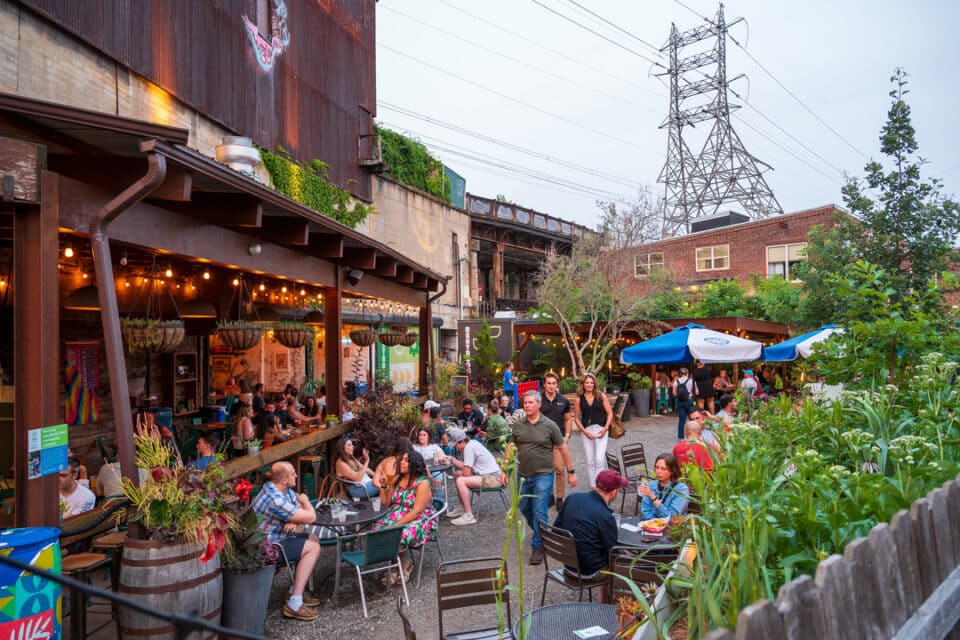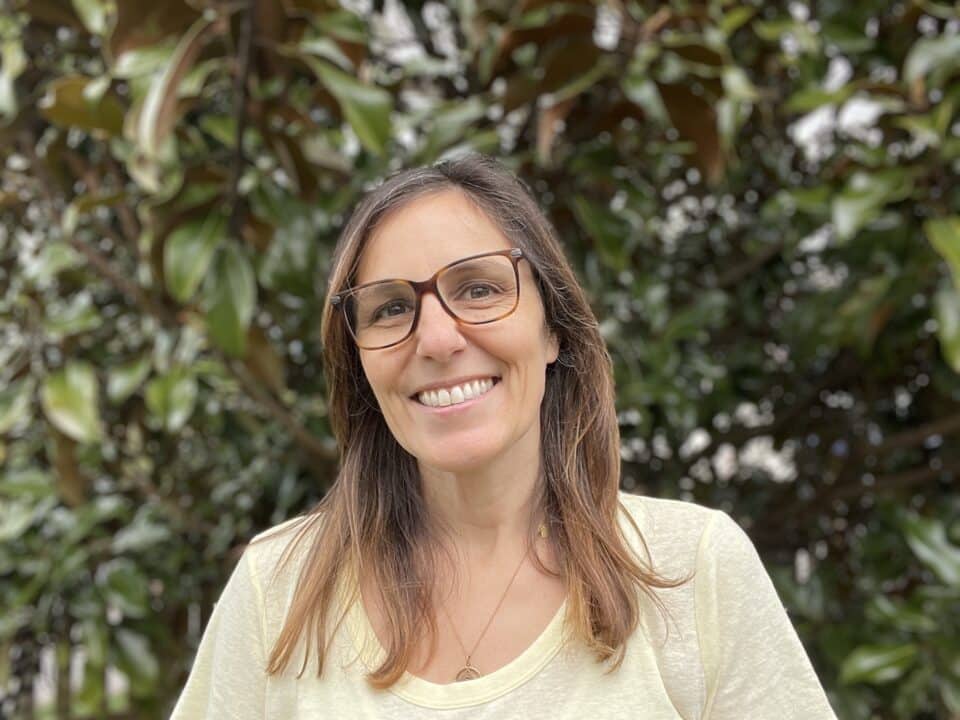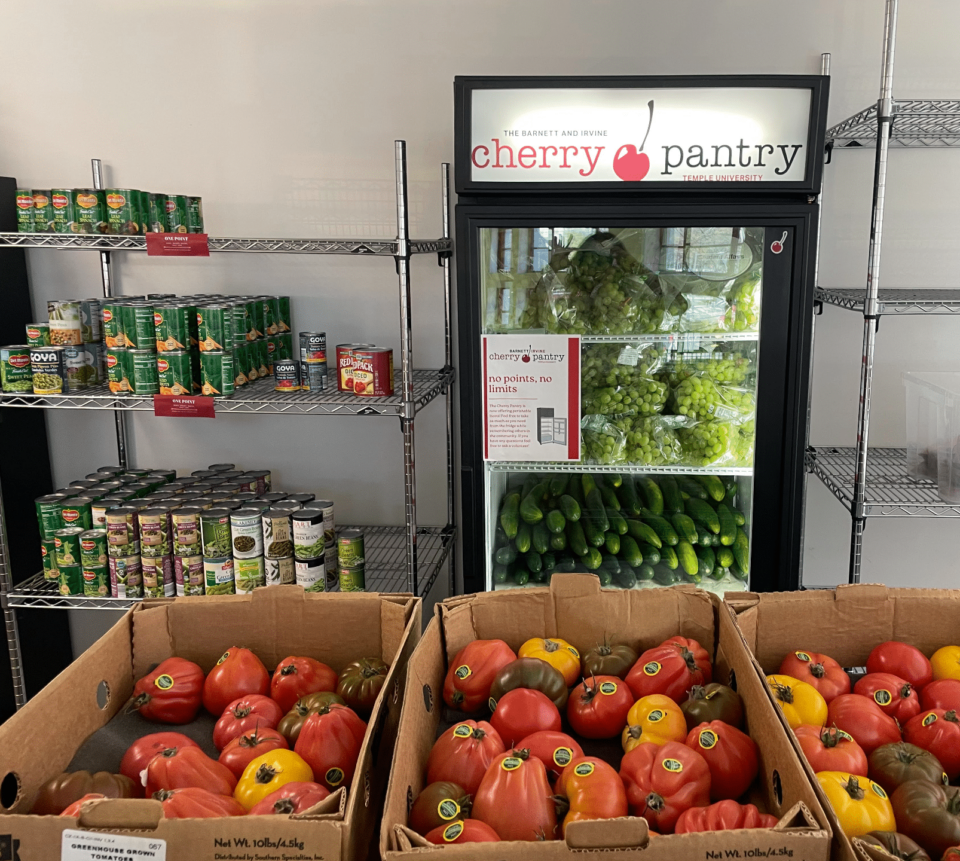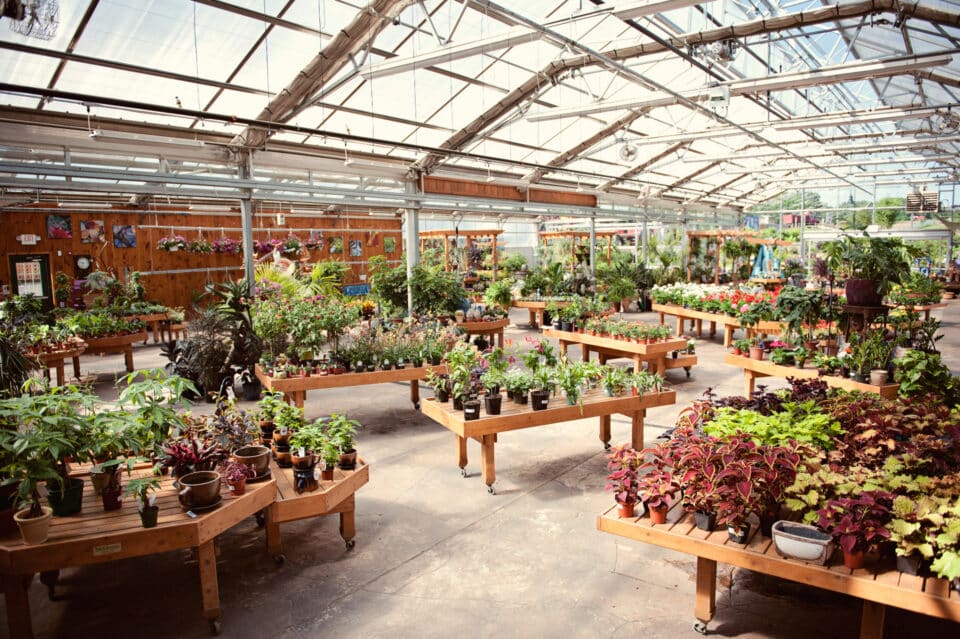Gabriel Boscana of Máquina Coffee Roasters is an artisan’s artisan. A little more than a year ago, Boscana launched his one-man specialty coffee roasting operation. Inside his garage.
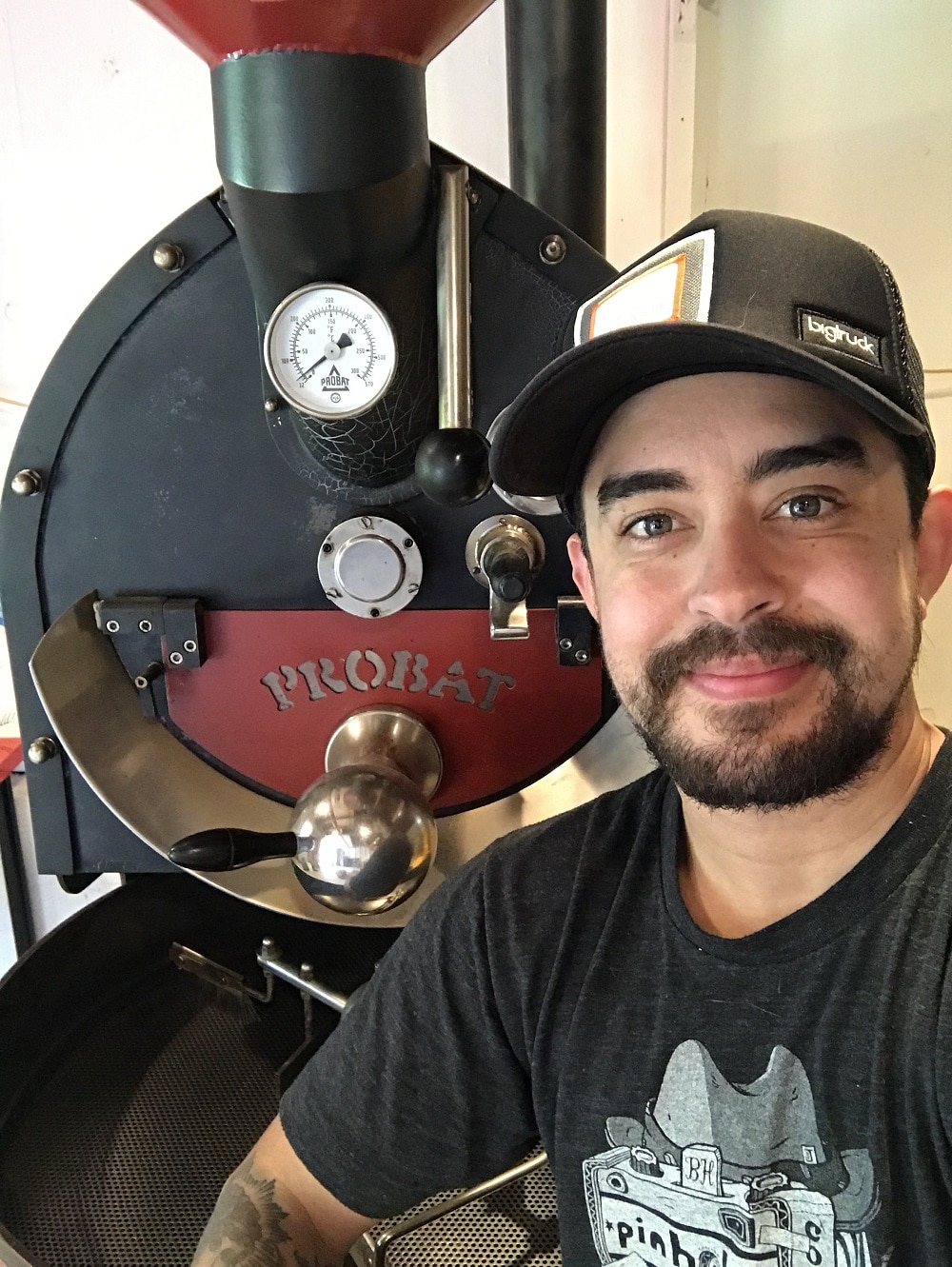
Boscana’s beans are generating a buzz in the world of coffee geekdom and orders arrive steadily from individual subscribers and market-driven cafes and restaurants across the country. He’s now roasting 300 lbs of coffee beans a week.
We chatted with Boscana to find out a little more about how his powerful-yet-unassuming business came to be.
A Craft Coffee Life
After nearly two decades of coffee industry experience ranging from work as a barista to a buyer, Boscana knows the trade like few do.
He began his career at Gimme! Coffee in Ithaca, NY, which is also where he met his wife. The two then moved to the Bay Area, where Boscana said he “learned the ritual” of coffee, including how to roast. He ultimately landed a role as National Roasting Manager for Intelligentsia Coffee, where he bought directly from coffee farms and traveled to locations in San Francisco, Los Angeles and Chicago to ensure product consistency.
Intelligentsia is known for pioneering coffee’s Third Wave, a craft movement marked by devotion to product over marketing, independent ownership direct trade and sustainable practice, all essential characteristics of Máquina.
With the birth of their daughter and a desire to begin roasting himself, Boscana and his wife returned to the East Coast, settling into what was to be a temporary living situation right outside of West Chester. “I thought we’d move to Philadelphia,” Boscana explained. Instead, he said, “We kind of fell in love very, very quickly with Chester County.”
Boscana believed the area was ripe for craft coffee with its educated and discerning populace, focus on land stewardship and conservancy and booming culinary scene: “All the things that you need for a specialty coffee company to thrive,” he said. And that was that.
Putting It Together
Boscana’s “first and biggest step” was buying a roaster. “It’s the bread and butter,” he said. He looked for some time before a friend at Acre Coffee in California contacted him. “He found it,” Boscana said, of the Probat roaster now in his garage. He said the old German machine is the gold standard of specialty coffee roasting. His is relatively small at 5 kilos, able to roast about 10 lbs at a time.
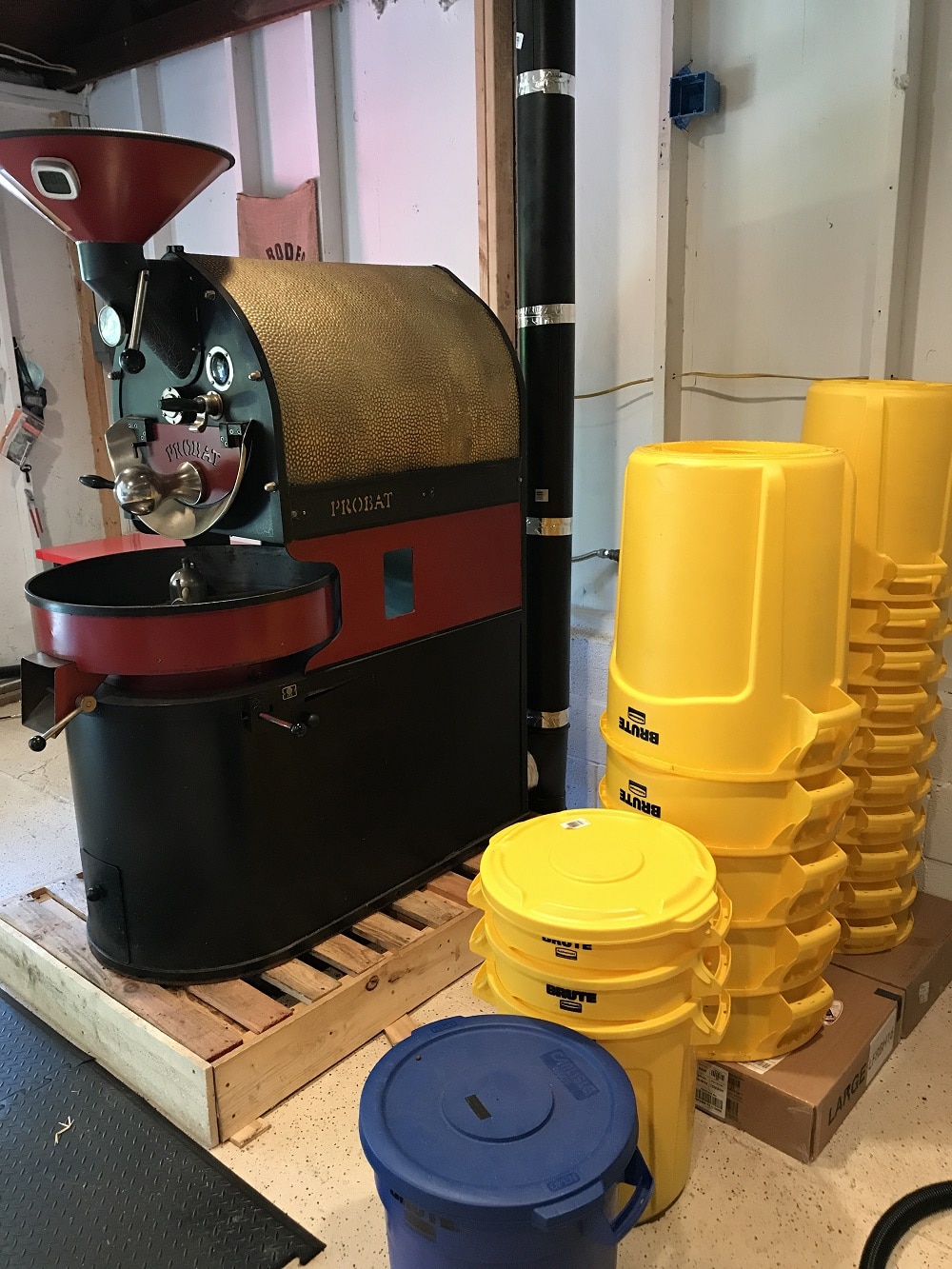
Packing equipment, heat sealer, pallet carrier, packing tables, shelving units and a new concrete floor followed. “It’s very basic production,” Boscana explained. “It’s not fancy by any means, but it serves its purpose.”
His second major business expense is the coffee itself. What Boscana buys is specialty green coffee, which follows the standards of the Specialty Coffee Association and is imported from origin. He roasts and cups small samples to decide what to buy.
Specialty coffee’s quality is rated upon a grading system. “Anything above 80 points means it has no defects,” Boscana explained. “No mold, no debris, no defects in processing, no fermentation. Just clean coffee.” He buys well above 80. “86 plus,” he said. “The tippy top of coffee. And then I roast.”
Boscana said his role as a roaster is preserving the quality of the coffee shipped to him from all over the world. His favorite beans are from Ethiopia, “the birthplace of coffee,” which he said “taste like no other coffee on the planet,” as well as those from Kenya.
The coffee crop is seasonal, and Máquina’s menu will change four or five times per year with no more than six coffees available at a given time. Right now is the heart of the Central American and East African seasons, meaning the coffee has been harvested, shipped and just landed.
Boscana said he plans to be “as seasonal as I can be,” because fresh coffee creates a “totally different sensation in your mouth” versus crops that have been sitting. “I don’t want to serve stale bread. I want it fresh out of the oven.”
With his garage now a fully operational roasting house, Boscana delights in walking out of his back door to work each day. “It’s sustainable, small and personal,” he said. “I wanted something really authentic and kind of intimate to start off, and then to very organically build the brand.”
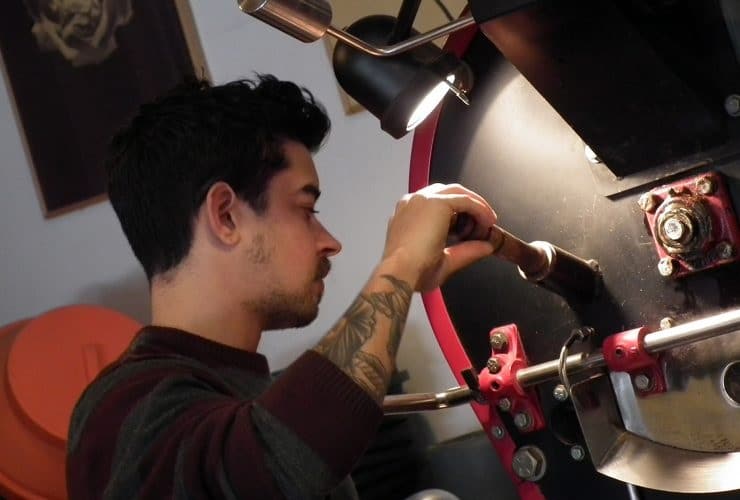
Humanity in Coffee
Ideas about branding had been on Boscana’s mind for quite some time. “What bag you put your coffee in matters to people,” he said, and he was intent on sending the right message.
What he’s zeroed in on with Máquina is the inextricable link between people and machines in the coffee industry and the hands that carefully handle and pass the product from tree to cup. The humanity behind the craft is what Máquina is all about.
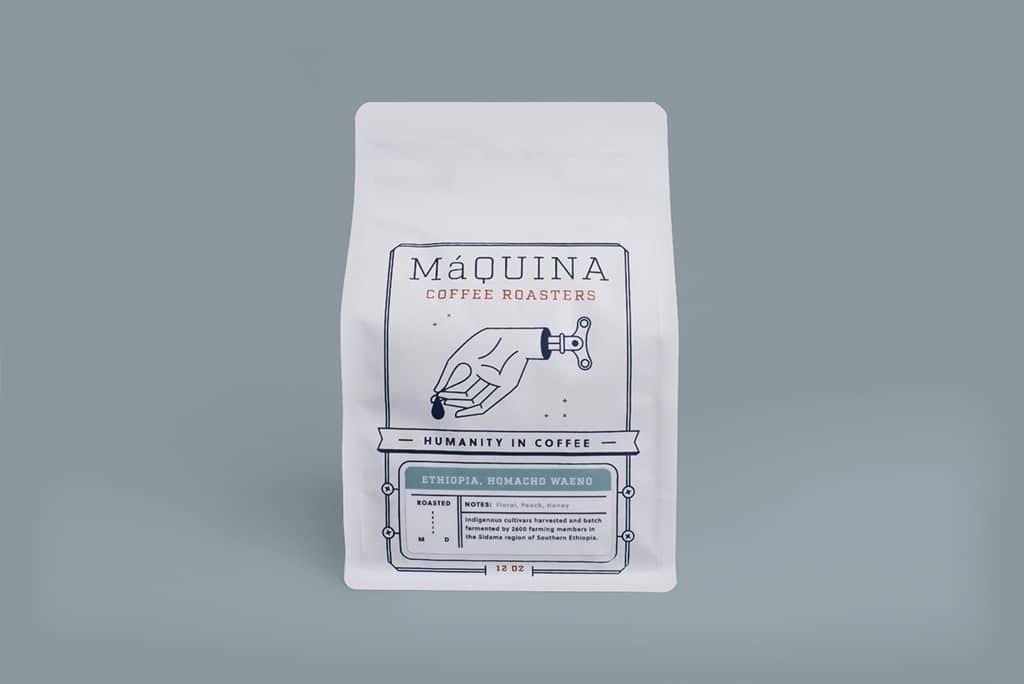
The company name, Máquina, is Spanish for “machine”, and the logo is a slender hand with a crank handle on one end and a coffee drip coming from the fingertips. Boscana said the look has an intentionally feminine element in contrast to a history of masculine branding in the coffee business, which he said is, “just not how the world really is.”
Boscana wants his packaging to pay homage to the craft of coffee, in which “women play an enormous part.” He explained that gender equity in the coffee industry is a major issue, as women do the bulk of the labor while retaining very little ownership. Efforts to remedy this have led to many women-owned coffee cooperatives, which often outperform the cooperatives owned solely by men. “Well, of course,” Boscana said he thought when he first learned this. “Why would you think it would be any other way?”
Studies are showing that increased equity and ownership across the industry that allow women more autonomy and control result in improved lives as well as a better product. “There’s a real impact there,” Boscana said. “The more we support those products, the better off we all are.”
Beyond the social elements of his company, Boscana also wants his product packaging to appeal on a personal level, “like a treat for yourself.” He said Máquina is interested in making coffee that is about more than “just something you drink to stay awake.”
Beans on the Menu
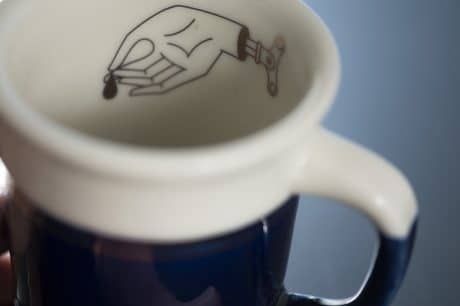 Interested in trying Máquina coffee for yourself? Bags of beans may be purchased online individually or by monthly subscription. For those not used to dark, oily coffees, Boscana suggested first trying Parts & Labor, a blend of Central and South American Coffees, and then venturing onward: “Ease in with Parts & Labor, and then try others.”
Interested in trying Máquina coffee for yourself? Bags of beans may be purchased online individually or by monthly subscription. For those not used to dark, oily coffees, Boscana suggested first trying Parts & Labor, a blend of Central and South American Coffees, and then venturing onward: “Ease in with Parts & Labor, and then try others.”
His current single origin offerings, Ethiopian, Kenyan, Peruvian and Columbian in origin, span from balanced to complex to sweet in nature, with accents ranging from fig to jasmine and honey to cacao.
Boscana also said, “my coffee is meant to be drunk black. It’s not bitter, not astringent.” He suggested investing in a good grinder and endorses a variety of brewing methods including drip, Chemex and immersion. He has full confidence in seeing craft coffee newcomers come back again, and said that so far “every customer I’ve had is a return customer.”
Monthly subscriptions, available in one, two or three bag quantities, make lovely treats for oneself or the ultimate gift for coffee loving friends and family. Boscana individually selects from his various beans and ships them out on the first Tuesday of the month.
“Coffee is the only thing people drink every day besides water,” Boscana said. Being a part of that intimate daily ritual is clearly something he holds dear.
Find Máquina Coffee Roasters products online and follow their happenings on Facebook and Instagram.
- Photos: Courtesy of Máquina Coffee Roasters
